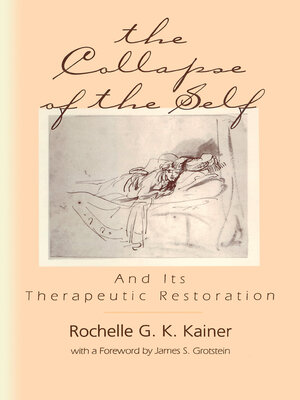The Collapse of the Self and Its Therapeutic Restoration
ebook ∣ Relational Perspectives
By Rochelle G. K. Kainer

Sign up to save your library
With an OverDrive account, you can save your favorite libraries for at-a-glance information about availability. Find out more about OverDrive accounts.
Find this title in Libby, the library reading app by OverDrive.



Search for a digital library with this title
Title found at these libraries:
| Library Name | Distance |
|---|---|
| Loading... |
The Collapse of the Self and Its Therapeutic Restoration is a rich and clinically detailed account of the therapeutic restoration of the self, and speaks to the healing process for analysts themselves that follows from Rochelle Kainer's sensitive integration of heretofore dissociated realms of psychoanalytic theory. In describing how the reworking of pathological internal object relationships occurs in conjunction with the transformation of selfobject failures, Kainer brings new insight to bear on the healing of the self at the same time as she contributes to healing the historic split in psychoanalysis between Kleinian theory and self psychology.
Extensive case illustrations, refracted through the lens of her uniquely integrative perspective, bring refreshing clarity to elusive theoretical concepts. Of special note is Kainer's distinction between normal and pathological identifications. Equally valuable is her introduction of the term "imaginative empathy" to characterize the kind of attunement that is integral to analytic healing; her nuanced description of the relation between imaginative empathy and projective identification bridges the worlds of Kleinian theory and self psychology in an original and compelling way. She ends by spelling out how her theoretical viewpoint leads to a more comprehensive understanding of various clinical phenomena.
The Collapse of the Self and Its Therapeutic Restoration, is a sophisticated yet accessible work, gracefully written, that elaborates a relational theory of thinking, of creativity, of identification, and of the formation and healing of psychic structure. Kainer's ability to bring the often dissonant voices of different psychoanalytic schools into theoretical harmony as she develops her viewpoint conveys both the breadth of intellectual engagement with colleagues and the depth of clinical engagement with patients that inform her project from beginning to end.







